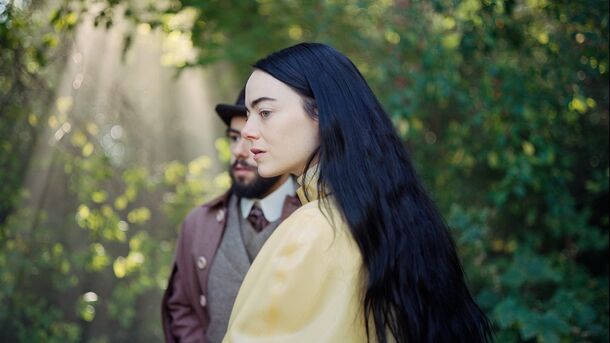Poor Things and 4 Other Book Adaptations You Should Experience as Movies First

It's better not to read the books before watching the movies that were based on them.
Not all film adaptations have a harmonious relationship with their source material. More often than not, we hear that the book is better. However, sometimes movies also appear to be original stories.
These are films that do not require familiarity with the original source material.
1. Enemy, 2013
Enemy is a screen adaptation of the novel The Double by José Saramago, written and directed by Denis Villeneuve. The plot follows history teacher Adam Bell, who notices an actor who looks exactly like him in a rented film.
There are many possible interpretations of the events on screen, but ultimately, Adam searches for his doppelgänger, which leads him nowhere good.
Saramago's not-so-great creation was transformed into a film comparable to Mulholland Drive or Lost Highway.
2. 1408, 2007
A mediocre story from the collection Everything's Eventual was turned into one of the best Stephen King adaptations. The classic themes of a cursed hotel and a writer descending into madness in 1408 are combined in perfect proportion.
The less you know about the plot, especially the ending, the more vivid your perception of the film will be. The director could never agree with the producers on how it should end, so the movie was made with three different endings, ranging from hopeful to hopeless.
3. Poor Things, 2023
Poor Things is an adaptation of the novel of the same name by Alasdair Gray. In Gray's bibliography, Poor Things is not his most ambitious creation. It is a postmodern version of Frankenstein, which director Yorgos Lanthimos developed into the most outstanding point in his career.
It is better to perceive Poor Things in isolation from the 1992 novel. Each author is great in his own way, and there is no need to compare them, especially regarding such specific material.
4. Jurassic Park, 1993
Jurassic Park is a case where the film adaptation is so much better than the original source that the latter is completely forgotten.
Although the author of the original novel, Michael Crichton, wrote many books, he was more of a producer than a writer. This exemplary adventure movie, which even after 30 years looks like it came out yesterday, deservedly leaves the original source in the deepest shadow.
5. Murder on the Orient Express, 2017
Murder on the Orient Express is valuable primarily for its unexpected ending. Once you know it, you won't want to read it again or watch any film adaptations.
There's no point in looking for the director's statement in the movie or getting acquainted with the original in advance to better understand the author. In this case, it's best to choose between the book and the film in advance.